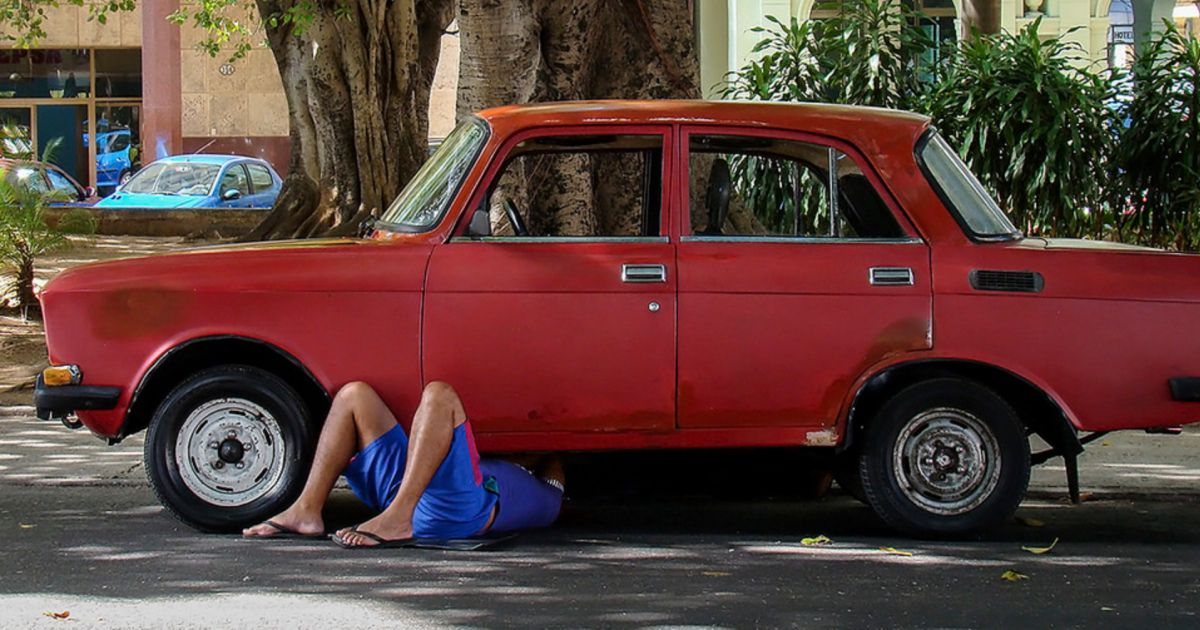
Related videos:
The Cuban government has announced a new regulation that sets prices for the import and sale of vehicles in the country.
This regulation, published in the Official Gazette No. 128 on December 30, 2024, will come into effect on January 1, 2025, and has sparked controversy due to the high costs that citizens interested in acquiring a means of transportation will have to bear.
Prices, converted to US dollars at the official exchange rate, reflect a situation that makes it difficult for even those with above-average incomes to access vehicles.
According to the regulation, a standard internal combustion vehicle will cost 2,040,000 Cuban pesos if the model is less than five years old, which is equivalent to about 15,900 dollars.
If the vehicle is between 5 and 15 years old, the cost will be 1,020,000 CUP (7,950 dollars), while those older than 15 years will be sold for 510,000 CUP, approximately 4,000 dollars.
High-end cars reach even higher figures, exceeding 3,500,000 CUP, which is equivalent to more than 27,000 dollars.
This price range is far from being affordable for most Cubans, whose average monthly salary barely covers basic needs.
The high cost is not limited to cars. New motorcycles, often viewed as a more economical transportation option, are also unaffordable for many.
A motorcycle that is less than five years old will cost 265,000 CUP, which is equivalent to over 2,000 dollars.
On the other hand, although these figures are already high, vehicles are also subject to additional taxes, such as the Special Tax on Products and Services, which further increases their final price.
This tax, applied progressively based on the type of vehicle and its energy source, can reach up to 35% for internal combustion cars and other luxury models.
Although the government has tried to encourage the use of electric vehicles through tax incentives, the regulations impose additional requirements that raise the cost of acquisition.
Electric cars have lower taxes and, in some cases, are exempt from the Special Tax, but buyers must purchase charging stations to be able to use them.
This, combined with its high initial cost, limits the population's access to these more sustainable options.
Furthermore, only a small segment of the population will have access to significant benefits. Cuban collaborators abroad and diplomatic personnel, for example, will be able to import vehicles at reduced prices and with tax exemptions, a provision that benefits a privileged minority while the majority remains excluded from these advantages.
The new legal framework also imposes limits on the number of vehicles a person can acquire within a five-year period, restricting it to a maximum of six units.
Starting from the purchase of the third vehicle, the applied taxes increase drastically, reaching up to 100% of the vehicle's price in the case of a sixth acquisition. These measures aim to regulate the market, but they also highlight the elitist nature of the regulations.
The Cuban economic context, marked by low wages, high inflation, and a lack of opportunities, makes these prices unattainable for most people. As a result, acquiring a car, rather than being a satisfied basic need, remains a luxury reserved for a minority.
In the meantime, the general population will continue to rely on a deteriorated and overcrowded public transportation system that fails to provide effective solutions to mobility issues.
Frequently Asked Questions about the Importation and Sale of Vehicles in Cuba
What are the new prices for imported vehicles in Cuba?
Imported vehicles in Cuba will have prices that vary based on their age. A standard car less than five years old will cost 2,040,000 Cuban pesos (approximately 15,900 USD). If the model is between 5 and 15 years old, the price will be 1,020,000 CUP (7,950 USD), and vehicles older than 15 years will cost 510,000 CUP (around 4,000 USD).
What additional taxes apply to vehicles in Cuba?
In Cuba, vehicles are subject to the Special Tax on Products and Services, which can reach up to 35% for internal combustion cars and luxury models. Electric cars have lower taxes and, in some cases, are exempt from this tax, although they require the purchase of charging stations.
Who can access reduced prices for vehicle imports?
Cuban collaborators abroad and diplomatic personnel have access to reduced prices and tax exemptions for vehicle imports. This provision benefits a privileged minority, while the majority of the population is excluded from these advantages.
How does the new regulation affect the car market in Cuba?
The new regulations limit the purchase of vehicles to a maximum of six units every five years. From the third vehicle onwards, the taxes applied increase dramatically, reaching up to 100% of the vehicle's price for a sixth purchase. These measures aim to regulate the market, but they also highlight the elitist nature of the regulations.
Filed under: